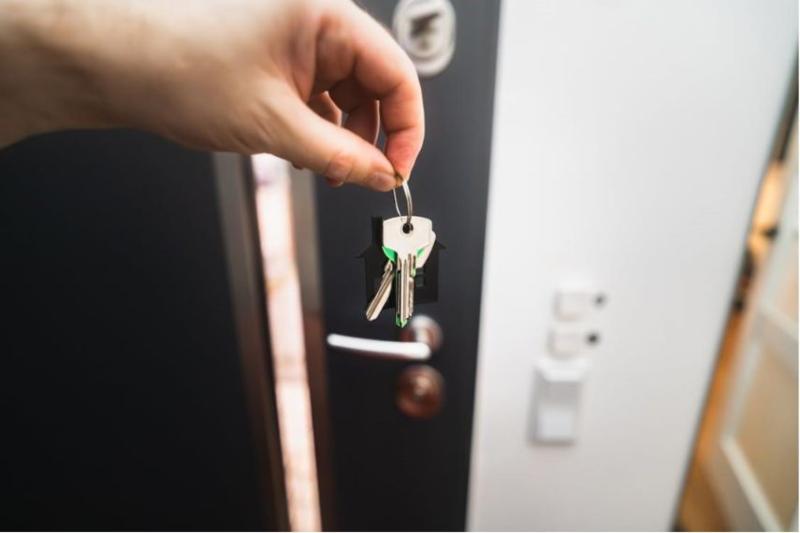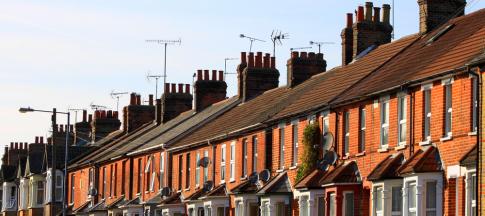
You may have heard on the news recently that there are going to be some changes to the laws around leaseholds.
This UK leasehold reform is part of a new act which has recently been passed by the UK government. It’s slowly being brought in throughout 2025 and beyond.
Get the lowdown on the Leasehold Reform 2024 latest news and how these changes could affect you.
What is a leasehold?
Leasehold is when you own the property but not the land it's on. If the lease comes to an end, the owner of the land becomes the owner of the property again.
The leases on leasehold properties are often very long, usually ranging from 99 to 999 years. They can be shorter if the lease has already been going for a while.
These time periods may seem silly as they’re longer than the average human life, but they’re there to make sure that the buyer can own their leasehold property through their whole lifetime.
Read our in-depth guide on the difference between freeholds and leaseholds.
What is the Leasehold and Freehold Reform Act 2024?
The Leasehold and Freehold Reform Act got through Parliament on 24 May 2024.
It aims to improve the fairness of leaseholds in England and Wales.
It follows on from the Leasehold Reform (Ground Rent) Act 2022, which ended ground rent for new residential properties.
There’s still a lot to be confirmed when it comes to the act, so we don’t know just yet exactly how it will affect leaseholders.
How are leasehold laws changing?
The bill will:
- make it cheaper and easier to extend a lease or buy a freehold
- increase the standard lease extension term to 990 years
- make it easier for leaseholders to take over management of their property
- stop any new leaseholds being created
- improve transparency around service charges and administration fees
- strengthen freeholders’ rights on private and mixed-tenure residential estates
- modernise the commonhold legal framework
- remove the threat of forfeiture (loss of rights due to not fulfilling a legal obligation)
- regulate ground rents for existing leaseholders
Will leasehold be abolished in the UK?
In short, no. Abolishing leaseholds isn’t going to happen any time soon.
But, the Leasehold and Freehold Reform Bill 2024 is set to ban the sale of any new leasehold houses in England and Wales.
A draft Leasehold and Commonhold Reform Bill will be published in the second half of 2025. This one will include information on how a new legal framework will ‘reinvigorate’ commonholds within the UK.
A ‘commonhold’ is like leaseholds, but you own the property indefinitely rather than for a set period of time.
Preparations for leasehold changes have already begun with the release of a white paper in March 2025, which proposes a new model for commonholds.
When will the reforms become law?
The act has had ‘royal assent’, which means the monarchy has approved it, but most of the act hasn’t been enforced yet.
That's because they’ll need to consult more on it first, as well as bring in some supporting legislation over the next year or so.
But the Labour government says they want to do this ‘as quickly as possible’.
In November 2024, the Housing Minister outlined their plans. But, to date, the government has already:
- proposed increased transparency around how building insurance fees are charged to leaseholders
- introduced new legislation on 31st January 2025 so leaseholders can extend their lease or buy their freehold without having to wait for two years after purchasing the property
- brought in regulations in March 2025 to put into practice the act’s right to manage (RTM) provisions (this included changing the criteria to allow more leaseholders management responsibilities)
Can you have a mortgage or secured loan on a leasehold property?
Mortgage lenders do offer mortgages on leasehold properties, but there’s some criteria you’ll need to meet.
The most important factor is the length of the lease left on the property.
We offer homeowner loans against leasehold properties to most property owners with a mortgage.
This is under the condition that there’s at least 40 years left on the leasehold once the term of the loan is finished.
We offer loan terms from 3 to 35 years.
What kind of home insurance do I need: freehold vs leasehold?
Currently, most freeholders are responsible for their property’s buildings insurance.
This covers the cost of any risks to the physical structure and permanent fixtures and fittings, from things like subsidence or vandalism.
This cost may be passed on to the leaseholder through monthly service charges.
If you’re considering buying a leasehold property, make sure to check the fine print and the terms of your lease, as there are exceptions to this rule.
Many mortgage lenders will ask you to have buildings cover as a condition of giving you a mortgage, so you'll need to arrange it before you complete.
Buildings insurance doesn’t cover the contents of the property, so protecting this is the leaseholder’s responsibility.
Contents insurance covers everything from furniture to gadgets if they're damaged or stolen.
Policy limits and exclusions apply, so always check your policy book for full information.
What does the new leasehold bill mean for home insurance?
Based on the Leasehold Reform, we can assume that there’ll be fewer leaseholds in future.
That means that one individual or business could be responsible for the cover for a building.
In this case, we think there’ll be greater demand for home insurance – cover that protects both the building and contents under one combined policy.
This is usually cheaper than buying buildings and contents policies separately, and it means less admin and paperwork.


